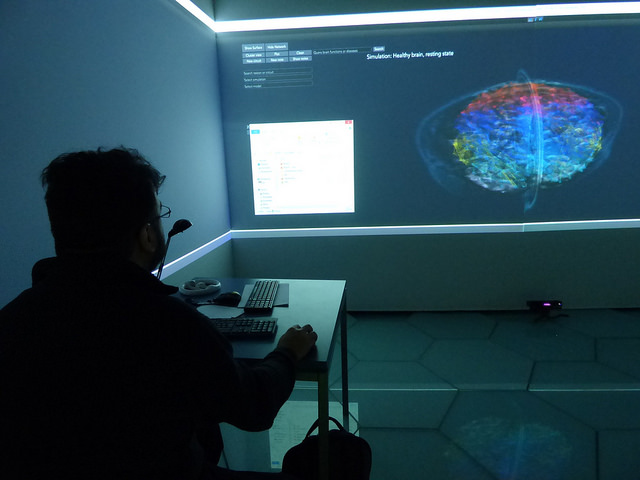A new way of teaching Biology
A new way of teaching Biology
International experts raise the structure that master’s programs in systems biology, the interdisciplinary branch of science that studies using mathematical models present interactions between genes, molecules, cells, tissues and organisms should have.

For some years now, biologists know that the study of living things cannot be based on observation of genes or molecules as isolated parts: the functioning of biological structures depends on a constant interaction between all the elements that compose it. This is the reason why at the beginning of the XXI century emerged the field of Systems Biology, a multidisciplinary branch of science that aims at the elucidation of the biological properties that emerge from the interaction of genes, molecules, cells, tissues and organisms.
As Systems Biology is inherently multidisciplinary, education within this field meets numerous hurdles including departmental barriers, availability of all required expertise locally, appropriate teaching material and example curricula. In an article published in the journal npj Systems Biology and Applications, international experts in Systems Biology have defined the directions considered necessary to improve training in systems biology and create educational programs in this field in all European institutions.
European in Systems Biology initially focused in basic pilot studies on the development and use of predictive models, primarily at the molecular level, such as metabolic networks. More recently, there is a growing effort towards the implementation of systems approaches within biomedical research and across the biotech industry. From spin-offs based on synthetic biology research towards drug discovery departments at pharmaceutical industries, there are several entities looking for workers able to employ and analyse complex data sets and to interpret the results with a critical mind set. This is the profile that students get systems biology.
The systems approach to biology is now widely accepted and becomes part of mainstream biology, also promoting the integration of some of their knowledge in programs dedicated to genomics and bioinformatics. However, the scope and content of those programs differ very widely, making it difficult for employers and students alike to determine into which type of employment, role or career path Systems Biologists would fit. The authors of this study, among which is Jordi García Ojalvo, Professor of Systems Biology at Pompeu Fabra University, propose a series of common ground to facilitate education and training planning in this field.

A good interdisciplinary program should be more than a collection of specific courses in each discipline combined in the same curricula. According to the authors, "the most enriching courses are those in which students of different backgrounds solve tasks together." Therefore, experts recommend that programs accept students with different curricula and keep them together as much as possible. Similarly, much of the training should be based on the so-called “Sherlock Holmes practicals", challenging exercises where students from different backgrounds jointly work around a given problem, instead of teaching theoretical concepts unrelated to the problems of investigation.
One of the limitations discussed in the referred article is the lack of introduction of Systems Biology in both secondary education and university degrees. In this regard, they highlight the degree in Biomedical Engineering offered by the Pompeu Fabra University, along with the degree in Integrated Science given at the Princeton’s Lewis Sigler Institute (USA) or at the National Autonomous University of Mexico, as examples of degrees that start from day 1 with integration of experiment and theory.
“It is important to highlight that the methods, tools, approaches that are learnt by the students within Systems Biology programme are a horizontal expertise and can easily be transferred to other life science fields”, says García Ojalvo. That is why currently Systems Biology is a scientific branch with a great potential in the present and future careers.
This note is based on the article Strategies for structuring interdisciplinary education in Systems Biology: an European perspective, in which have participated more than 25 international experts in systems biology, from universities Pompeu Fabra and Barcelona, and institutions Sweden, Germany, Slovenia, Italy, Norway, United Kingdom, France, Ireland, Netherlands, Belgium, Switzerland, Latvia and Denmark.
Reference work: Marija Cvijovic, Thomas Höfer […]Stefan Hohmann. Strategies for structuring interdisciplinary education in Systems Biology: an European perspective. Npj Systems Biology and Applications, Mayo 2016. doi:10.1038/npjsba.2016.11
